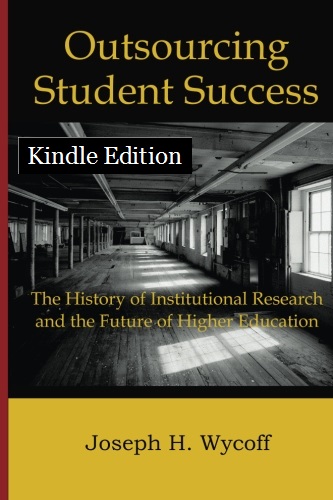International

The dangers of limiting research to elite universities | [W]e respectfully disagree with Altbach and De Wit’s suggested approach to these problems – ie, differentiating which universities are responsible for published research, while others are rewarded mostly for teaching. We are fundamentally troubled by the implications of such a suggestion, as mentioned above.
Luxembourg spends thousands more than other OECD countries per student | Luxembourg spends more than any other OECD country per student for primary, secondary and higher education and allocates more money to primary school children than those in secondary school.
Graduate salaries are no measure of a university’s worth | The government’s teaching excellence framework may have been controversial, but it has enabled the higher education sector to articulate what students, parents and industry are genuinely interested in: teaching, employability, student support, real-world skills and co-curricular activities.
What Is Your Philosophy of Higher Education? | I doubt that many administrators — myself included — have been asked or have asked ourselves the question about our philosophy of higher education. Yet, arguably, that philosophy should be the driving force behind our decisions, our projects, our strategic plans and, yes, our leadership styles.
U.S. National
Free College or Bust | Writing at The Washington Post, Jeffrey Selingo identifies three ways that the “Great Recession changed higher ed forever.”
Making College Affordable Remains a High Priority in Washington | At a recent Senate hearing, Senator Lamar Alexander (R-TN) said his Senate Health, Education, Labor and Pensions Committee isn’t going to start work to reauthorize the Higher Education Act until next year, but a Sept. 27 Bipartisan Policy Center event kicked off discussions on what components of the law should be changed.
College Scorecard Drops National Comparison Data | The Scorecard consumer tool previously showed how the net price, graduation rate, repayment rate and typical earnings for colleges compared to the national median. It also showed whether the college was above or below average for those measures.
Study Reveals Notable Graduate School Enrollment Trends | The number of ethnic minority, first-time graduate students inched up from 2016 to 2017 while women earned the majority of graduate degrees for the eighth year in a row, according to the latest annual study by the Council of Graduate Schools (CGS) and the Graduate Record Exam (GRE) Board.
U.S. States
Dallas County Promise Touts Impressive College Enrollment Numbers | Dallas County Promise—a massive effort to send every graduating senior to college for free—has not only been successful but transformative, according to administrators of the program.
NJ spending on higher education down by 24% since 2008 | Long after the Great Recession ended, almost all states still have not fully reversed funding cuts for public colleges. It’s down by 24 percent in New Jersey, compared with 16 percent nationally, according to the Center on Budget and Policy Priorities in a new national report out Thursday that draws a direct line between state funding cuts for colleges and increases in tuition over the last decade.
Kentucky Public Higher Education Affordability Ranks Low | Kentucky ranks 8th worst among states for college affordability – measured in terms of average tuition and fees at a public 4-year university as a share of median household income – according to Unkept Promises: State Cuts to Higher Education Threaten Access and Equity, a new report from the Center on Budget and Policy Priorities (CBPP).
Institutional
Lehigh Receives Reaccreditation through the Middle States Commission on Higher Education | Lehigh has received reaccreditation from the Middle States Commission on Higher Education (MSCHE), one of several regional accreditation authorities recognized by the Council on Higher Education Accreditation and the U. S. Department of Education.
UNC touts cheap tuition at three schools | North Carolina has always prided itself on trying to make higher education as affordable as possible, and the University of North Carolina system is putting new emphasis on that effort.
How Professors View Students: the Most Satisfying and Challenging Part of the Job | One aspect of their jobs that stands out in both its rewards and its challenges is working with students. Here are key findings from a Chronicle survey of nearly 1,000 faculty members…
Maximizing Success for First-Gen Students | First-generation students make up a third of all college students. Yet only 27 percent of this group graduates within four years, according to a new report released today. And while an increasing number of colleges recognize a need for student support services aimed at first-generation students, the report identified a notable lack of guidance about what those services should look like and how to scale them effectively.
Dampening Innovation, One Institution at a Time | What’s the fastest way to stifle innovation? Declare a higher education institution ineligible for federal financial aid, recommend it return hundreds of millions of dollars and watch other colleges and universities duck for cover. Western Governors University, a well-known nonprofit, online education provider, is under pressure to return $713 million in federal financial aid after the U.S. Department of Education’s Office of Inspector General said in an audit report that the university is ineligible to participate in Title IV programs because of not meeting certain standards. [Note: Or, perhaps, should we question the concept of innovation operative with WGU’s business model?]
Updated: October 12, 2018
